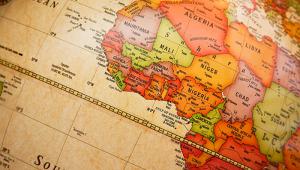IMF director Christine Lagarde identified industrial and economic sectors such as agriculture, tourism and construction as likely to be most labour intensive.
The IMF expects the Palestinian economy to contract by 1.6% this year and says unemployment stands at 30% in the West Bank and 50% in Gaza.
“One of the really good aspects of the plan ... is that it identifies some of the sectors, some of the industrial and economic sectors, that will be conducive to jobs,” Lagarde told the event in Bahrain.
“It cannot be any kind of growth in the West Bank and Gaza, it needs to be job intensive,” she added, listing agriculture, tourism and construction as sectors that “will absorb a lot of labour”.
She added: “There is an economic plan, there is urgency: it is a question of making sure that the momentum is sustained.”
She was speaking at the start of the conference to discuss the US administration’s latest $50bn economic plan aimed at resolving the Israeli-Palestinian conflict.
Business leaders and politicians gathered in Bahrain to debate the proposals that Washington says are necessary to achieve long-term peace. They have been described by their main proponent Jared Kushner, President Donald Trump’s son in law, as the “deal of the century”.
However, Palestinian leaders and other Middle Eastern states have dismissed the plans as largely meaningless in the absence of a political solution to the decades-old conflict, and even Israel has been lukewarm.
The $50bn pledged aims to provide economic incentives to integrate Palestinian communities and revitalise the West Bank and Gaza economy, but is descibed by critics as little more than a bribe.
The Palestinian Authority did not attend the Bahrain event and believes the open support of the US administration for Israel means that it is no longer a neutral arbiter in the peace process.
The IMF has been operating in the West Bank and Gaza since 1995, providing policy advice to the authority.
In September, the IMF reported that deepening rifts between key stakeholders and surging violence in Gaza – exacerbated by the relocation of the US embassy to Jerusalem - further imperil prospects for peace and the economic outlook was “increasingly untenable”.
“Longstanding constraints continue to act as a brake on growth, aggravated by large aid cuts and revenue losses,” the Fund said.
“Gaza is suffering disproportionately, with its economy shrinking and unfolding humanitarian catastrophe.”








